YouGov/Cebr’s Consumer Confidence Index for October reveals that UK households’ economic optimism has improved for the tenth month in succession.
This month’s headline figure – based on YouGov’s Household Economic Activity Tracker (HEAT) data – shows the Consumer Confidence Index at 109.6 in October. This is almost 15-points up on January when the Index was at 94.9 and a near five-point increase since the start of Q3 in July, when the score was 104.8.
This continued increase in consumer confidence into Q4 comes on the day the GDP figures for Q3 are announced, with Cebr projecting 1% quarter-on-quarter growth.
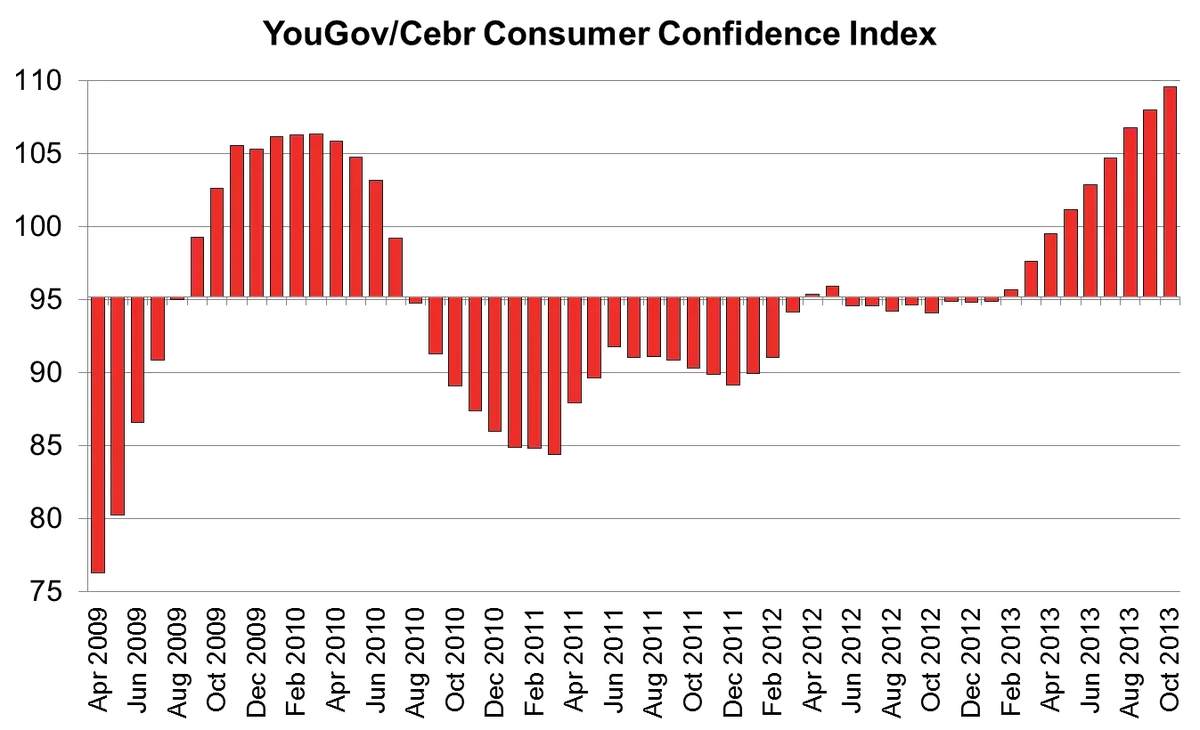
YouGov collects data about UK households’ economic perceptions on a daily basis, speaking to 6,500 people throughout the month. As well as measuring consumers’ overall economic confidence, the data also track their views on other measures such as changes in property value and job security.
The data show the significant role that the strengthening housing market has played in building consumer confidence during Q3 and into Q4. In July, homeowners expected property values to increase by +1.1% over the following 12 months, a figure that rose to +1.7% in September. In October, the expected increase in property values over the next year have increased again to +2.0%.
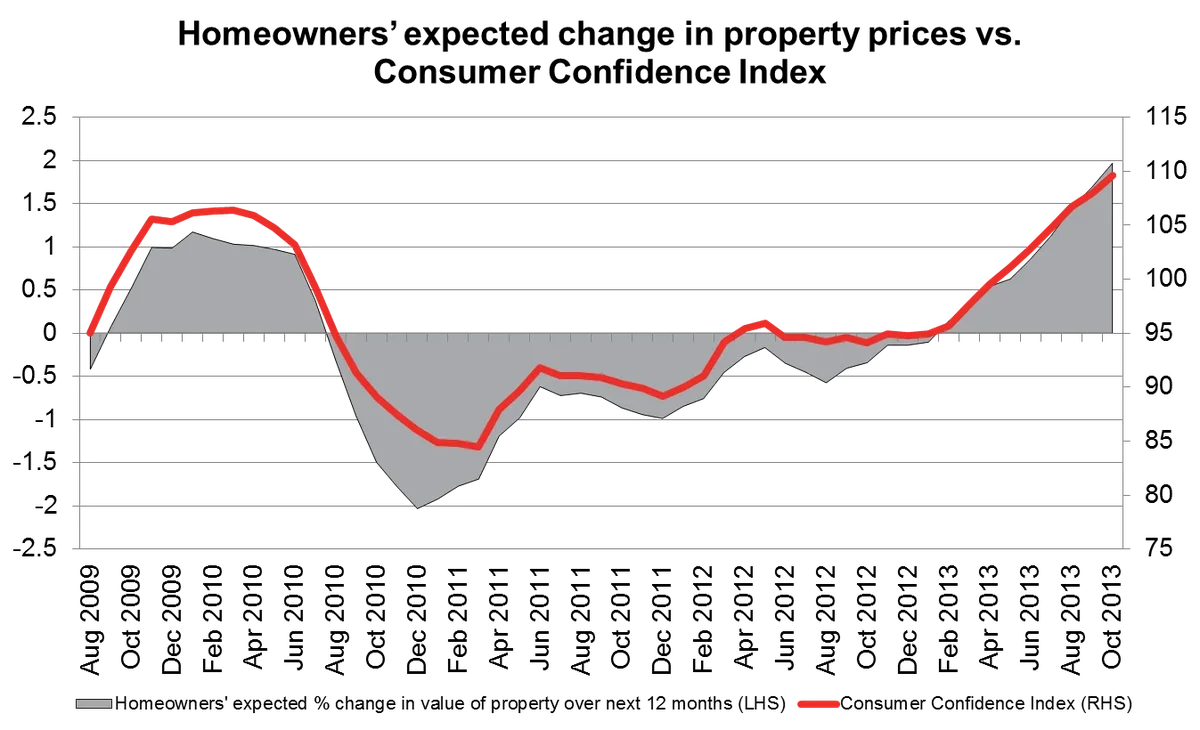
The YouGov/Cebr analysis highlights that while the buoyant housing market is an important part of the greater confidence among consumers, the improvement is being driven by more optimism in the workplace, too. In March, there was a net balance of -0.9% on workplace activity where when employees were asked whether business activity had increased (a positive score) or decreased (negative score) over the past month. In June this had improved to +8.8% and reached +9.9% in October. This reflects the UK’s accelerating economic growth and healthier productivity performance after years in the doldrums.
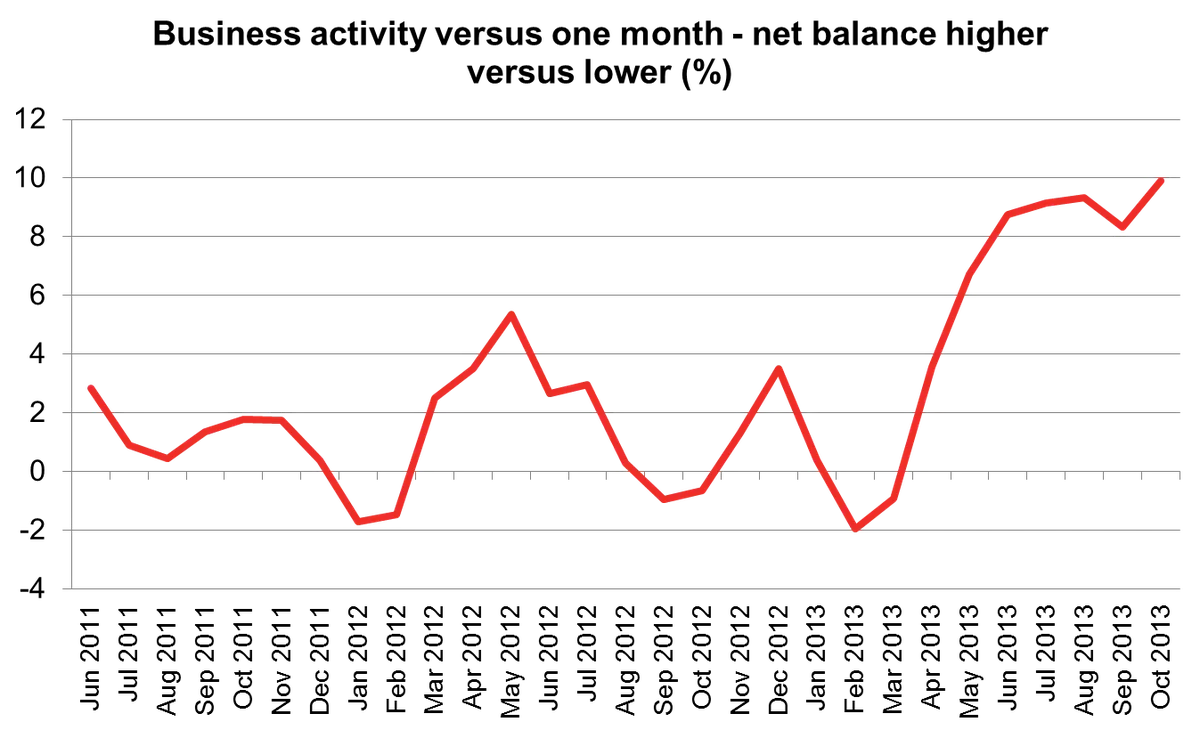
The data also show that the labour market continues to improve; an ever more crucial part of the economy to track given the Bank of England’s forward guidance and unemployment rate ‘waypoint’ at 7%. In line with the improving economy, hiring has remained steady while the number of redundancies has decreased noticeably. The net balance of new hires minus layoffs in the workplace over the past month has increased from +2.9 in March to +6.8% in June and +8.5% in October.
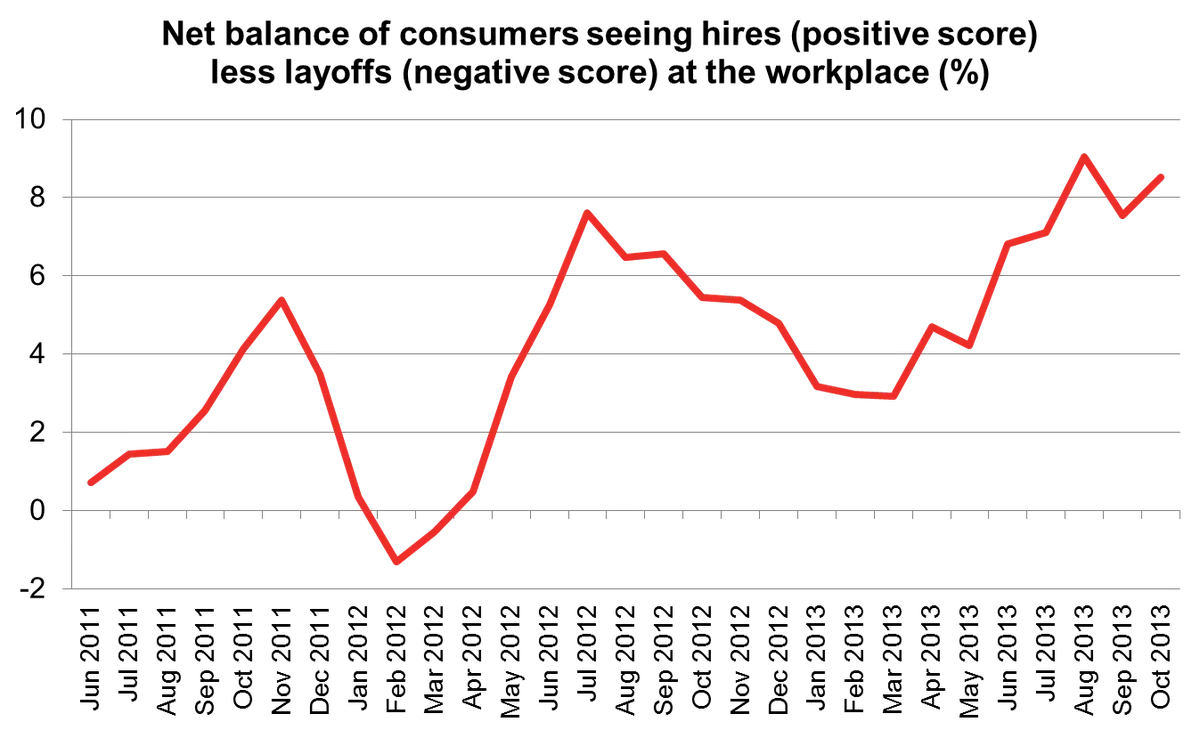
This situation has also been seen in the area of job security where the number of people feeling their jobs are secure has remained stable while those who think their positions are not secure has decreased. The net balance of people feeling their jobs are secure/insecure remains negative but is increasingly less so – in March it was -12.2%, in June it improved to -10.2% and in October stands at -8.5%.
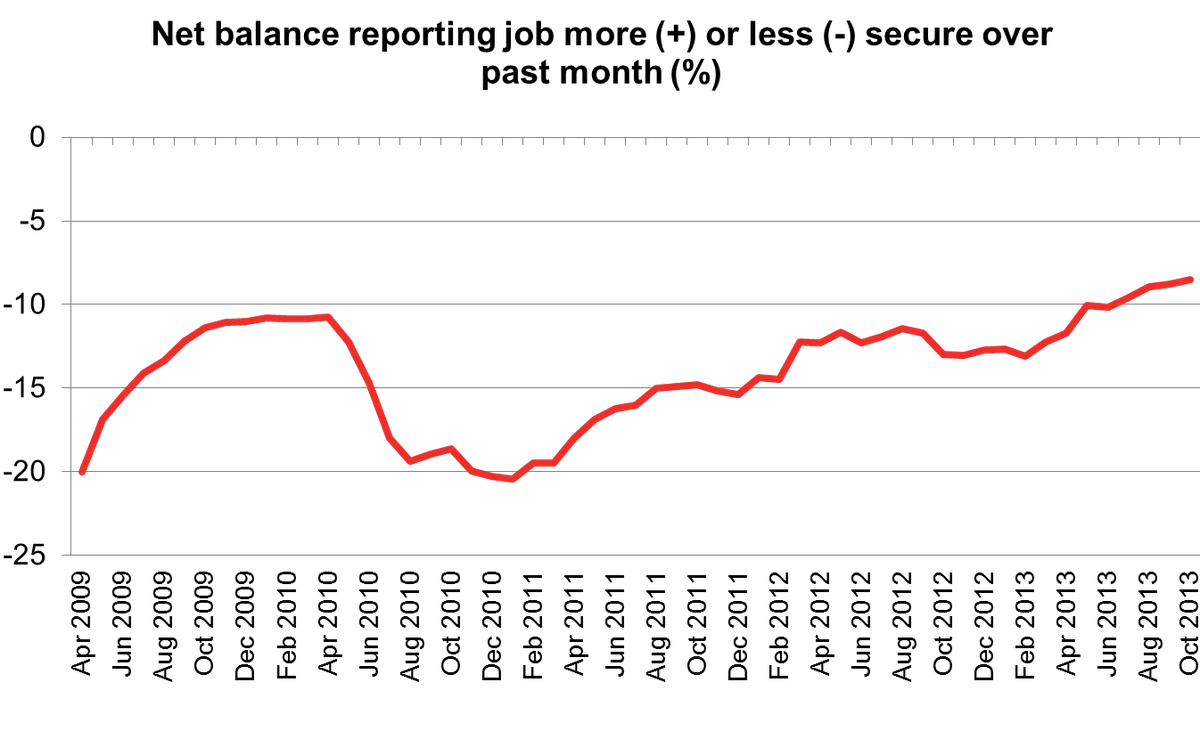
Stephen Harmston, Head of Syndicated Reports at YouGov, says: “The boom in consumer confidence we have seen since the start of the year continues. Throughout the last quarter we saw an increase across all our measures – be they perceptions of property values, job security or business activity – and this is continuing into Q4. What is particularly noticeable about this rise is how consistent it is. It’s not a flash in the pan but is instead a continuous and steady improvement in how consumers see the economy.”
Charles Davis, Associate Director at Cebr, says: “This is another strong set of results for the UK economy. We have seen an extraordinary step change in consumer confidence this year. While real incomes are still under pressure from weak pay growth and above-target inflation, consumers seem to have had enough of the gloom. While the familiar tale of a buoyant UK housing market is an important part of the story, the data show that consumers are busier at work, are seeing more hires at the workplace and feeling more secure about their jobs. This shift in sentiment is supporting increased consumer spending and reduced precautionary saving; we have seen the savings ratio fall to around 5% in the first half of 2013 from the 7% level that persisted through much of the period since the financial crisis.
“Against this background we think that the UK economy will have accelerated again to reach 1.0% growth in Q3 2013 up from 0.7% in Q2. Whether the ONS data reflects this remains to be seen, but it is clear to us that the UK economy is currently growing at a fair clip. Of course, the interesting question is whether this can be sustained. Our first glimpse into Q4 from the October YouGov/Cebr Consumer Confidence Index suggests the UK economy is continuing its upward trajectory and we are on track for growth of at least 1.6% in 2013.”






